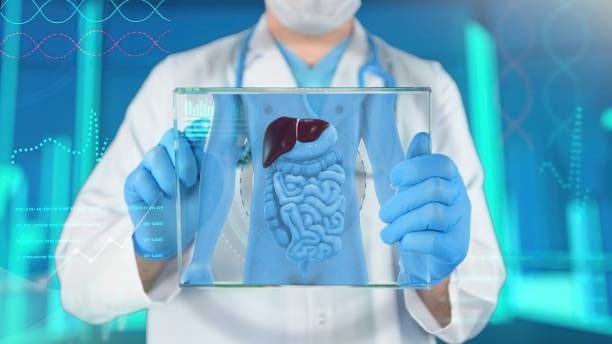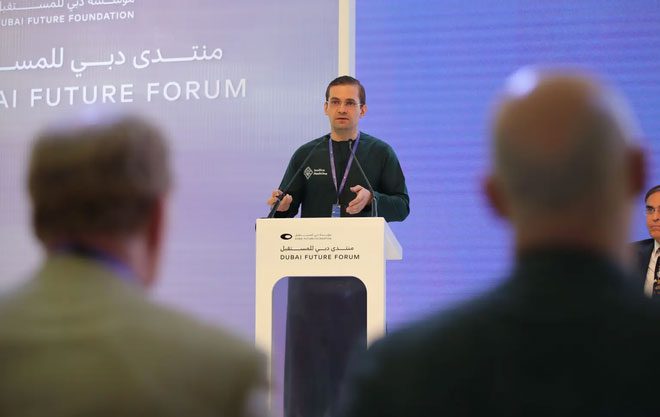Artificial intelligence is making significant breakthroughs in various fields, particularly in medicine. New AI technology has even developed a cancer treatment method in just 30 days.
The New York Post reports that artificial intelligence (AI) has not only developed a cancer treatment method in a mere 30 days but can also predict patient survival rates.

AI creates potential treatment for hepatocellular carcinoma. (Photo: iStock).
In a recent study published in the journal Chemical Science, researchers at the University of Toronto, in collaboration with the biotechnology company Insilico Medicine, developed a potential treatment for hepatocellular carcinoma (HCC). The researchers utilized Pharma.AI, an AI platform designed for drug discovery.
According to the Cleveland Clinic, HCC is the most common type of liver cancer, which begins when a tumor forms on the liver.
Development of the New Treatment
By applying AlphaFold, an AI database that provides protein structures, to Pharma.AI, scientists discovered a new target for developing an unprecedented treatment pathway for HCC. They developed a novel attacking molecule that could bind to this target without the need for additional tools.
The creation of this potential drug was completed in just 30 days from the time they selected the target and synthesized seven compounds. After generating the compounds a second time, they found a stronger molecule, though this drug still needs to undergo clinical trials before widespread use.
Alex Zhavoronkov, founder and CEO of Insilico Medicine, stated: “While the world is captivated by AI advancements in art and language, our AI algorithms have produced potent inhibitors targeting specific sites, with the assistance of AlphaFold.”

Alex Zhavoronkov, founder of Insilico Medicine, discusses the groundbreaking advancements of AlphaFold and Pharma.AI. (Photo: Shutterstock).
AI is rapidly transforming the field of medicine as traditional testing methods become slow, costly, and limited in their scope of discovery.
Nobel laureate in chemistry Michael Levitt remarked: “This paper is further evidence that AI can accelerate speed, enhance efficiency, and improve accuracy in the drug discovery process.”
He shared that combining AlphaFold’s predictive capabilities with the target identification and drug technology of the Pharma.AI platform is ushering humanity into a new era of drug discovery thanks to AI.
In 2022, AlphaFold made a major breakthrough in both AI and structural biology by predicting the protein structures for the entire human genome.
Co-author Feng Ren, chief scientific officer and co-CEO of Insilico Medicine, stated: “AlphaFold has opened new avenues for predicting the structures of all proteins in the human body.”

AlphaFold can predict the structure of all proteins in the human body, which is a significant benefit for treatment. (Photo: iStock).
He added that Insilico Medicine sees this as a tremendous opportunity to apply protein structures within the company’s AI platform to develop new therapeutic methods.
The researchers also explained how different AI information types could revolutionize the healthcare sector.
Alan Aspuru-Guzik, a professor of chemistry and computer science at the University of Toronto’s Department of Science & Arts, stated: “This demonstrates that AI can help researchers expand the range of diseases we can treat.”
AI Predicts Patient Survival Rates
In a separate study published in the JAMA Network Open journal, an AI system developed by scientists at the University of British Columbia and BC Cancer can predict cancer patient survival rates using physician notes.
The model utilizes AI’s natural language processing (NLP), a tool that helps AI understand the complex language of humans. NLP can analyze physician notes after initial visits and identify unique characteristics for each patient.
It can predict survival rates after 6 months, 36 months, and 60 months with over 80% accuracy. This model can also determine rates for all types of cancer, whereas previous models could only be applied to specific cancer types.

The new model can predict cancer patient survival rates. (Photo: iStock).
The lead author, Dr. John-Jose Nunez, a psychiatrist and clinical researcher at UBC’s Mood Disorders Center and BC Cancer, said: “Essentially, AI reads consultation documents similarly to how humans read them. These documents contain many details such as the patient’s age, cancer type, underlying health conditions, past substance use, and family history.”
The doctor explained that AI would combine all this information to create a more complete picture of the patient’s examination results.
Previously, cancer survival rates were calculated retrospectively and were classified based on a few general factors such as tissue type and cancer location.
The scientists tested this model using data from 47,625 patients across six BC Cancer facilities in British Columbia. Dr. Nunez noted: “This model is based on BC Cancer data, making it a very promising tool for predicting cancer survival rates here.”
He added that the great thing about NLP models is their high scalability, ease of portability, and lack of requirement for structured datasets. They can quickly create these models using local data to enhance diagnostic performance in a new area.



















































